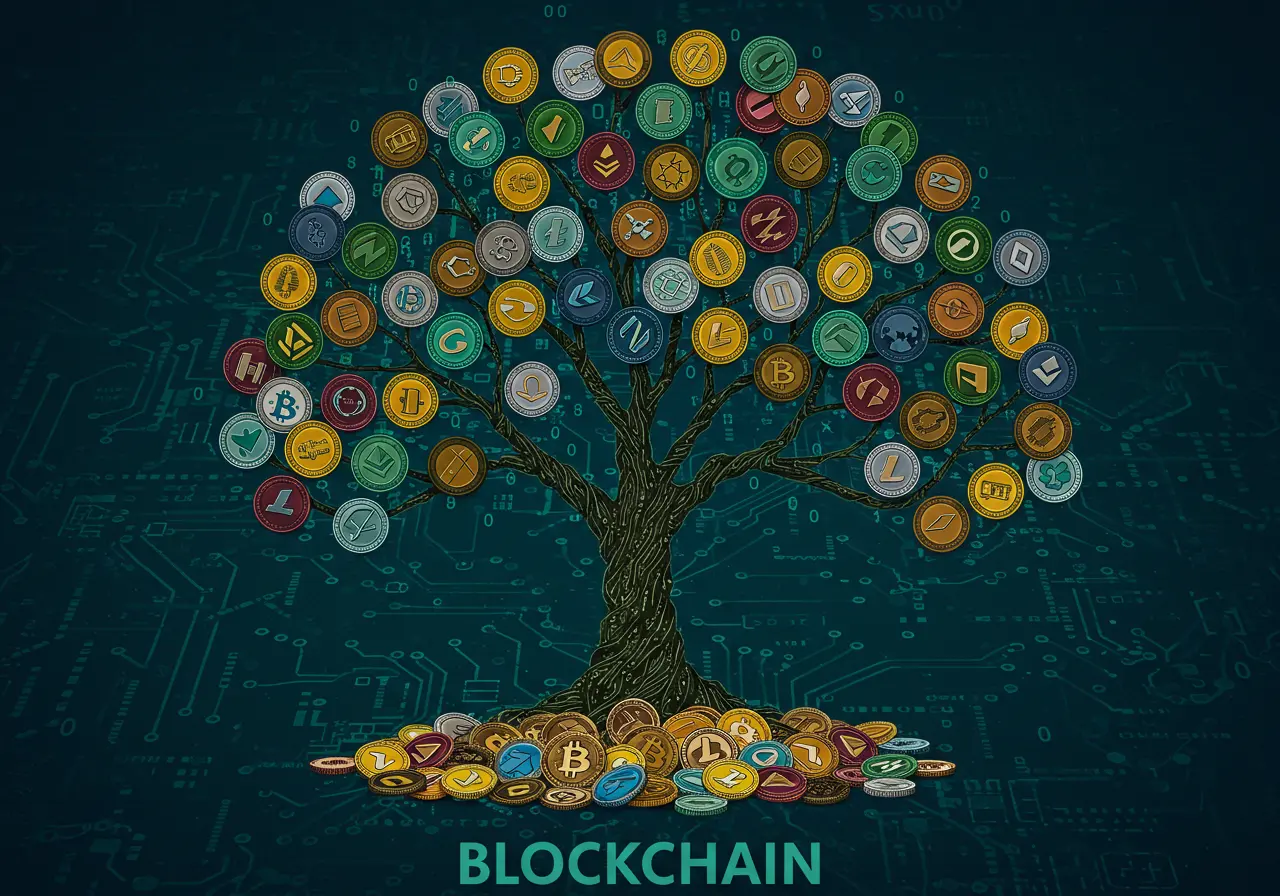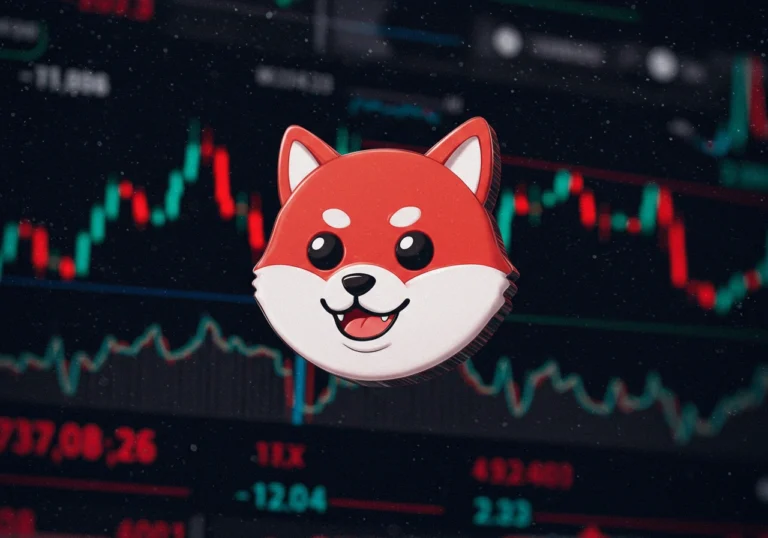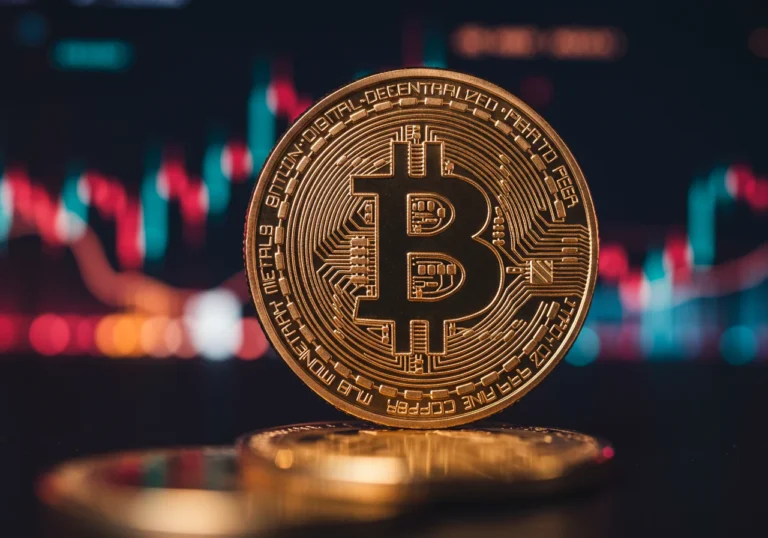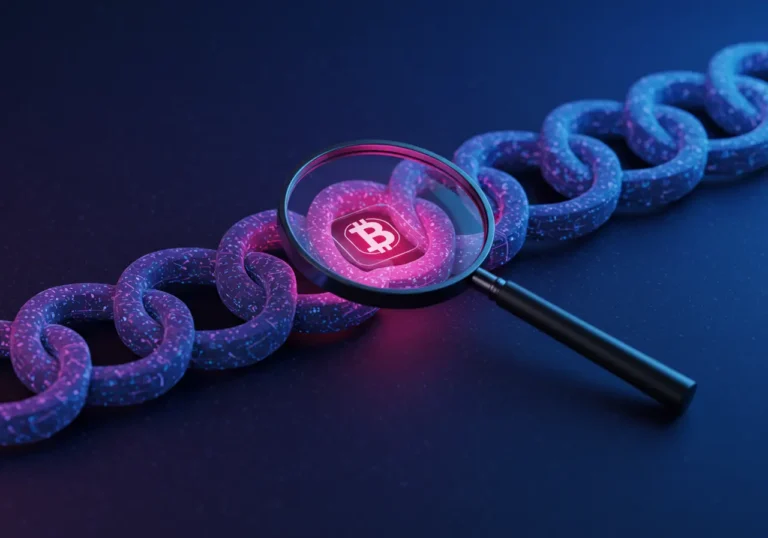Tokens vs. Coins: What’s the Difference & Why it Matters?
Tokens and coins might seem like twins at first glance, but they’re more like cousins with different vibes. They’re both part of this wild crypto world, sure, but they’ve got their own quirks. Figuring out what sets them apart can save you from a headache—or maybe even a few bucks. So, let’s dive in and chat about what they are, how they’re different, and why it’s worth knowing.

What’s a Coin, Anyway?
Picture a coin as the main cash of its own little digital kingdom. That kingdom? It’s called a blockchain—think of it as an online ledger that tracks every move. A coin’s tied to its blockchain, kinda like how dollars belong to the good ol’ U.S. of A.
Take Bitcoin, for instance. It’s got its own blockchain—the Bitcoin blockchain. Same deal with Ethereum, running its own show. These coins are like your everyday money in the digital space. You can spend them, trade them, or stash them away, hoping they’ll grow into something big.
Coins are the heavy hitters. They’ve got their own setup, their own rules. That’s what gives them their oomph.
Okay, So What’s a Token?
A token, though? It’s a different beast. It doesn’t have its own kingdom or blockchain. Instead, it crashes on someone else’s couch—usually Ethereum’s, since it’s got the welcome mat out.
Think of tokens as those special passes you get at an arcade. They’re not just cash—they’ve got a purpose, depending on what they’re built for. Some might unlock a neat app, while others could mean you’ve got a slice of something real, like a house or a business.
For example, there’s DAI, a token on Ethereum that acts like a steady dollar in this crazy crypto sea. Or Chainlink, which hooks up real-world info to the blockchain. Tokens are like little helpers—each one’s got its own gig.
Coin vs. Token: What’s the Big Difference?
So, what’s the deal between a coin and a token? Let’s break it down, real simple:
- Where They Hang Out:
Coins have their own blockchain—like they’ve built their own digs. Tokens? They’re renting space on someone else’s blockchain. - What They’re Good For:
Coins are mostly about being money—buying stuff or saving it. Tokens can play that game too, but they often pull double duty, like letting you into a club or showing you own a piece of the pie. - How They Come to Life:
Creating a coin’s a big job—you’ve gotta build a whole blockchain from scratch. Tokens are a breeze since they piggyback on what’s already there.
Here’s a way to see it: a coin’s like the cash in your pocket—the go-to stuff. A token’s more like a voucher or a gift card—handy for specific things.
Table of Contents
Why Should You Give a Hoot?
Alright, why does any of this matter to you? Well, if you’re thinking about jumping into crypto with some spare change, knowing whether it’s a coin or a token can make or break your move.
When you grab a coin like Bitcoin or Ethereum, you’re betting on the whole operation—the blockchain itself. If heaps of people jump on board, that coin could climb in value. It’s like putting your money on a country doing well.
Tokens, though? They’re more of a personal bet. You’re backing one idea or project. If it takes off—say, an app everyone’s raving about—that token might shoot up. But if it flops, well, your token’s just collecting dust.
I heard about a mate who threw cash at a token for some hot new game. Sounded brilliant, right? He figured it was like buying Bitcoin. But the game tanked, and his money just sat there, useless. That’s why this stuff’s worth getting your head around—it stops you from rolling the dice blind.
How Do ERC-20 Tokens Fit In?
Lots of tokens call Ethereum home, and a bunch of them play by something called ERC-20 rules. Don’t let that spook you—it’s just a way to keep things smooth on Ethereum’s turf.
Think of Ethereum as a big playground. ERC-20 is like the rulebook for making toys that fit right in. Tokens following these rules—like Uniswap or USDT—work with Ethereum wallets and apps, no fuss.
When you send an ERC-20 token, it rides Ethereum’s rails. It’s like borrowing your mate’s ute to move your gear—works just fine.
What About Utility Tokens?

Some tokens get dubbed utility tokens ‘cause they’re useful for something specific. They’re like keys that open doors in a project.
Check these out:
- Basic Attention Token (BAT): Tied to the Brave browser. Watch ads, snag some BAT—companies pay for your eyeballs. It’s like a little thank-you for your time.
- Golem (GLM): Use this to borrow computer juice from others. Like renting a laptop to get your homework done.
These aren’t just coins to spend—they’re part of the action. Pretty nifty, huh?
Security Tokens—What’s That About?
Then you’ve got security tokens. These are cool ‘cause they’re like owning a chunk of something real—a company, a building, whatever.
In the States, the folks in charge keep a close eye on these. They might call a security token a “security,” like stocks you’d see on Wall Street. That comes with rules—good for keeping you safe, but it can complicate things.
Say a token’s tied to a business. It’s a security token, and the sellers have to dot their i’s and cross their t’s with the law.
Watch Out with New Tokens
Real talk—tossing money at tokens, especially from fresh projects, can be a roll of the dice. Here’s what to keep an eye on:
- It Might Bomb: If the project goes belly-up, that token’s worth zilch. Like buying a ticket to a gig that never happens.
- Scams Happen: Some dodgy types whip up tokens to grab your cash and vanish. Sucks, but it’s true.
- No Backup: Big coins like Bitcoin have history—new tokens are a wild card.
Before you dive in, poke around. What’s the project? Who’s behind it? If it’s too shiny to be real, it probably ain’t.
Turning Real Stuff into Tokens
Here’s a fun one: tokens can make real things digital. It’s called real world asset (RWA) tokenization.
Imagine a house worth 100 grand. Split it into 100 tokens, each worth a grand. Buy one, and you’ve got a piece of that house! Trade it, sell it—all online.
It’s like slicing up a cake so everyone gets a taste. Houses, art, gold—big stuff gets easier to handle.
Why Make a Token, Not a Coin?
Ever wonder why a company picks a token over a coin? Here’s the scoop:
- Less Hassle: Building a blockchain for a coin’s a slog—tons of time and cash. Tokens just use what’s there.
- Custom Jobs: Tokens can be tailored—like for voting or using an app.
- Crowd Power: Handing out tokens gets people pumped and helps things grow.
It’s like renting a shop instead of building one from the ground up—quicker and cheaper.
What’s a Governance Token Worth?
Some tokens are governance tokens—they let you have a say, like voting on project tweaks.
To figure out their value, ask:
- How much sway does it give you?
- Is the project picking up steam?
- Any perks, like rewards?
In some money projects, these tokens let you pitch ideas. If it’s thriving, that token’s a gem.
Fees: Coins vs. Tokens
Sending coins or tokens comes with a fee—like a postage stamp. But it’s not the same:
- Coins: Send Ethereum, pay in Ethereum. Simple.
- Tokens: Send a token on Ethereum, you still pay in Ethereum—not the token.
It’s like needing fuel for your car—tokens borrow Ethereum’s juice to roll.
Can Crypto Skip Its Own Blockchain?
You bet! Tokens show it’s possible—they hitch a ride on blockchains like Ethereum. No need to start from zero, and that’s why new ideas pop up fast.
Let’s Wrap This Up
There you go—you’ve got the lowdown on tokens and coins. Not so tricky once it’s laid out, right? Coins are the standalone champs with their own blockchains. Tokens are the versatile sidekicks, tagging along on someone else’s setup and tackling all sorts of tasks.
Why care? ‘Cause it clues you in on what you’re jumping into. Coins might feel solid for some; tokens could be your shot at a hot idea—just double-check it’s legit.
When I started, I’d have killed for someone to spell it out this plain. Now you’re in the know, you can step into crypto with a bit more swagger. Saving, spending, investing—you’re set!
Quick Takeaways
- Coins have their own blockchain; tokens borrow one.
- Coins are cash; tokens can be tools or shares.
- Coins back a system; tokens back a project.
- New tokens? Look before you leap.
- Tokens can digitise real things—like houses!

Hello, I’m Edmilson Dias, founder of CoinBringer. I created this platform to guide people through the fast-moving world of cryptocurrency with clarity and safety. With years of research in blockchain and digital security, my goal is to translate complex topics into practical knowledge, offering reliable tutorials, safety insights, and guidance for both newcomers and experienced users.
Discover more from CoinBringer
Subscribe to get the latest posts sent to your email.







